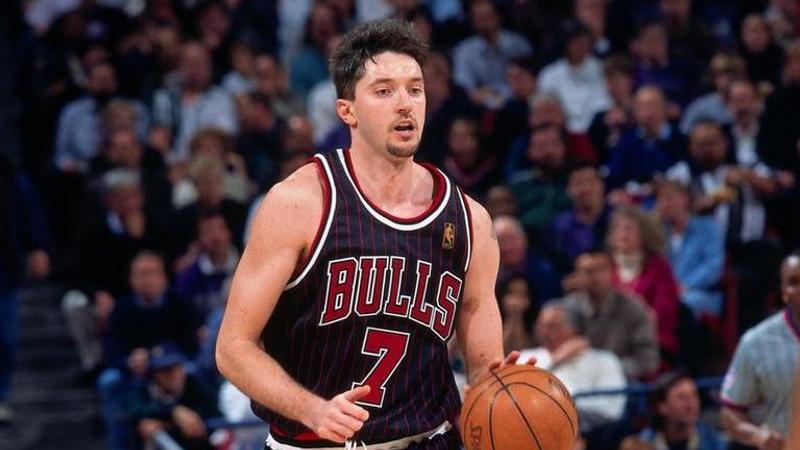Published 18:52 IST, May 28th 2020
How the Chicago Bulls dynasty collapsed after Michael Jordan's 'Last Dance' in 1998
The Chicago Bulls dynasty fell apart shortly after Michael Jordan won the Bulls their sixth championship. Jerry Krause's plan to rebuild ended up as a failure.

Advertisement
The Chicago Bulls dynasty fell apart shortly after Michael Jordan won the Bulls their sixth championship. As documented in The Last Dance, Phil Jackson had already declared that it was his last season with the Bulls, owing to his troubled relationship with GM Jerry Krause. A week after the Bulls won in 1998, Jackson resigned. Though Bulls owner Jerry Reinsdorf asked Jackson to come back for one season, the decision had been made. What followed was a low record that left them at the bottom of the Eastern Conference with channels refusing to broadcast their games.
A look at the Bulls downfall after Jordan's departure
After Jackson left, the team owners and the National Players' Association were discussing a reduction in salary cap. Negotiations about the salary cap ended in June and the NBA announced their third NBA lock-out in history. It continued till January 1999, where the season could also have been cancelled. The same month, Jordan called a press conference on January 13 and retired from the NBA for the second time.
Days after Jordan quit, the Bulls released Dennis Rodman and traded Steve Kerr to the San Antonio Spurs. When the lockout ended, Scottie Pippen was traded to the Houston Rockets. A day after that, Luc Longley became a free agent and joined the Phoenix Suns. With that, the Championship squad was broken up, with only Toni Kukoc and Ron Harper remaining.
While Dickey Simpkins, Rusty LaRue, Bill Wennington, Randy Brown and Keith Booth were also still with the Bulls, they had not been integral in securing the last three-peat. Brent Barry, Mark Bryant and Kornel David joined the Bulls.
When the next season started, fans were only apprehensive about the Bulls and Utah Jazz matchup. Turner Sports vice president Kevin O'Malley had told the Chicago Tribune that they and other broadcasters did not want to show the game live. They stated that they cannot take the game as it would be over by half-time. As predicted, the Bulls were down by 15 points by half-time and lost the game by eight.
Their then-coach Tim Floyd tried to maintain some optimism, positive that the team will do better. They later had a seven-game losing streak and reports and fans labelled Krause's rebuilding idea as a 'failure'. During games, announcers were asked to drop the title 'world champions', another indication that the Bulls dynasty had ended.
The Bulls gameplay was also affected as the triangle offence which was perfectly orchestrated by Jordan and Pippen was no longer delivering the same results. After the Bulls 83-67 loss to the Atlanta Hawks, Dikembe Mutumbo advised the team to let go of the offence and 'change the menu' now that their chef was also changed. While Kukoc improved his game, the team continued to do bad.
In a game against the Pat Riley-coached Miami Heat, the Bulls scored a low 49 points, a new NBA record. The previous record was held by the Jazz in their 1998 NBA Finals Game 3 with the Bulls. When talking to the media, Kukoc simply stated that nothing could be said and everything hurt. Yet, he still hoped for a things to turn better. However, the Bulls ended their season with 13 wins, at the bottom of the Eastern Conference and with one televised game.
Also read | Chicago Bulls break-up: Who was Jerry Krause? How did the Chicago Bulls dynasty break up?
After the Bulls ended their 1999 season, Chicago Bulls wrote a report headlined 'A time to celebrate: Bulls' season is over'. The Bulls got worse after that, and Floyd's team fell to a 17-65 win-loss record in the next season. In 2000-01, they were down to 15-67. Twenty-two years after the 1998 Championship, the Bulls are yet to play another NBA Final.
(Image source: NBA official site)
18:52 IST, May 28th 2020




